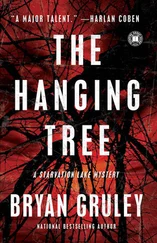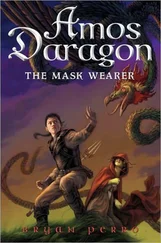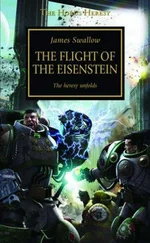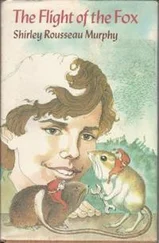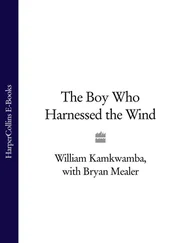‘Long ago all Samlanders were given a tree at birth,’ Volker told Otto. ‘For men it was usually an oak and for women a linden, the goddess of fate. Once you had your tree, it could never be cut down – if it was, its owner’s life would be cut short.’
‘Just like that?’ Otto asked.
‘You’d be surprised at the power of a tree. When I was a few years older than you boys I was taking a short cut back through the forest from Fischhausen when I heard someone scream. It was my brother’s voice. I tried to work out where he was and remembered a grove with an old oak in the middle. Our father had told us not to go there and I knew where those screams were coming from. I found my brother pinned under the trunk of a tree that had fallen. His pelvis was crushed and the ground round him was soaked with blood. Even with an axe and three men it would have taken too long to move the tree. He knew that, and so did I.
‘I went to the back of the tree where he couldn’t see me and tried to pull my knife out without him hearing, but I started to cry. I knew he heard because he fell quiet. We had made a vow to each other years earlier that if either of us was so badly hurt that there was no possibility of recovery, the other would help. I slid up over the fallen trunk, hoping he was looking out into the forest, but he was staring straight into my eyes. I could tell he knew that I was going to keep my vow. I sliced into his neck as fast and deep as I could, then fell on my knees and prayed.’
The boys shuddered and looked at each other without speaking.
Volker bowed his head and went on, ‘My father learned the following week that my brother’s birth tree, in the village where he had been born near Elbing, had been felled for firewood by a family who had moved there.’ Then he pointed at a tree near the edge of the field. ‘You see that one?’
The boys nodded.
‘That’s mine. I keep an eye on it to make sure no one goes near it.’
The boys were aghast.
‘Come with me for a moment,’ Volker said. The boys hesitated, then did as told. He led them to a grove, pointed to a juniper and a willow, then walked over to the latter and broke off three small switches. He handed one to each boy. ‘I don’t think you’ll need them, but they’ll protect you against evil,’ he said.
When they started for home, the woods seemed darker than they had earlier, even though the sun was high in the noon sky. Otto no longer minded that Karl was in front. He and Peter followed close behind, holding their willow switches. Their footsteps rustled leaves and snapped twigs, and for a long time those were the only sounds they could hear – until there was a sudden crack a short distance ahead. A wild boar appeared, glanced at them and ran in the opposite direction.
‘Maybe we should go on to the road,’ Peter said.
They turned right and pushed through the thick undergrowth until they found themselves on a track that ran through the forest to Germau. When they finally reached the square, they carefully leaned their switches against the iron railing that surrounded the linden and ran for the butcher’s.
Chapter 6
After their trip to Ellerhaus the boys avoided the forest and instead hiked to their grandfather’s house at Sorgenau, going along the main road through wide pastures and tunnels of neatly planted lindens lining the road. Before, Karl and Peter had paid little attention to them, but now they wondered if spirits lived in those trees as well, even though they weren’t in the forest and didn’t form a natural grove. They avoided the lone oak in a field a little way from Sorgenau, which Karl and Peter had often climbed.
One day after lunch with their grandfather and his wife, they went to the beach to collect amber. Occasionally someone found a large nugget, but since almost everyone from the villages collected it, they usually found only a few shards, which they took home to Ida. She would take a piece of hardboard, paint a background, then carefully stick the amber to a thin layer of glue to make a sun or breakers crashing on to the beach – made of real sand – with tiny amber people standing on the shore.
On the way back to their grandfather’s house Karl had an idea. He would be the Kameradschaftsführer, the sergeant, of their miniature Hitler Youth unit, and told Peter and Otto to stand to attention. Near Sorgenau the cliff was similar to the one he had jumped off, but not so high. When he had persuaded them to play his game, he led them to the cliff. ‘You’ll probably be the only ones in your group who’ll have trained for the test of courage,’ he said. ‘You’ll thank me then.’
He called Otto forward first. His cousin raised his right arm and shouted ‘Heil Hitler’, as Karl had instructed.
‘You see that area over there? I want you to run as fast as you can and jump off without looking down.’
‘Can I look first?’
‘If you do, what’s the point in jumping?’
‘But what if I land on the rocks?’
Karl called his brother forward.
‘Heil Hitler,’ Peter shouted, arm in the air.
‘I’ll let you keep my knife for the rest of the day if you run across the field and jump without looking.’
‘That’s not fair!’ Otto complained. ‘You didn’t say that to me.’
‘I was going to, but you wouldn’t jump. You lost your chance.’
‘What if I go after Peter?’
‘Here’s a better idea. You run together. The first to jump off the cliff keeps it for the rest of today and the other can have it tomorrow.’
Peter and Otto took off.
‘Hey! You didn’t wait for my order!’
They didn’t look back, just continued to race across the field. Peter disappeared over the cliff, then Otto.
Karl stood alone in the field, absorbed in the view across the grass to the sea. His eyes were trained on a ship near the horizon – was it real or a mirage? Then he saw something move near the lip of the cliff. It was Peter, climbing into the field. Then Otto appeared and a moment later they were running towards him. When he realised they were coming for his knife, he turned and raced for the road to their grandfather’s house.
‘You cheat!’ he heard Otto yell. ‘We’re going to tell Grandpa.’
Chapter 7
By the time autumn 1944 arrived, the atmosphere around the village had changed. Throughout the day countless army trucks loaded with soldiers sped through the place. The boys no longer played on the square since Peter had almost been run over by a truck. The refugees who had occasionally straggled through the village prior to now, now came in a stream – families, older men and women, mothers and young children carrying satchels bound with rope. Almost all were from further east and had left their homes before the war had reached them, even though leaving was seen as disloyalty to the Führer. With no evacuation order forthcoming, many had fled under cover of darkness.
Karl continued to go to school in Pillau, but the two younger boys were at school closer to home. By now they had overcome the fear of the forest that had developed after their experience in Ellerhaus that summer and were hiking once more through the trees. Recently they had found thin strips of aluminium scattered throughout the woods, even in places far off the trail, and had begun to collect it. One day, in the forest near Trulick, four young soldiers confronted them.
‘What are you doing?’ one asked.
The boys held up the scraps of metal they had picked up.
‘Put it back where you found it – and tell everyone else we’ll shoot them if we catch them stealing it.’
The other three soldiers laughed. None looked more than sixteen, but the three boys were scared. Each had a large rifle slung over his shoulder.
When one lunged forward, the three boys screamed and the soldiers laughed even more. When they had all calmed down, one of them explained that the aluminium was intended to disrupt enemy radio transmissions: the soldiers had been ordered to scatter it in case the conflict moved into the area.
Читать дальше


